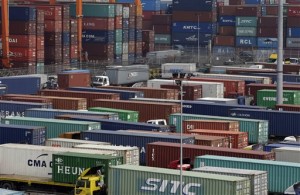MANILA, Philippines–Franchising companies reportedly suffered losses of at least P3 billion in the past few months due to the expanded truck ban policy and the congestion at the Port of Manila, making it more difficult for members of the Association of Filipino Franchisers Inc. (Affi) to achieve its growth targets for 2014.
Armando O. Bartolome, chair of the Affi board, said they were hopeful that the government would be able to resolve the traffic and port congestion issues, which are expected to spill over to the second quarter of 2015. Otherwise, these losses may even balloon to as much as P10 billion to P15 billion if the problems would persist.
“The P3 billion in losses incurred were due to the rising costs of goods and brokerage fees, among other charges. Suppliers have no choice but to increase their charges, which means that the profitability of the franchisors becomes even thinner and franchisors cannot simply increase their selling prices. We see these losses starting to escalate after (Manila) implemented the truck ban policy in February,” Bartolome said, referring to the city government policy that has since been lifted.
The estimated P10 billion to P15 billion in potential losses for the franchisers arose from lost business opportunities, he added. “Franchisors are not pushing too hard right now because of the lack of supply.”
Affi, however, remained bullish on its prospects this year, as the group expects at least a 25-percent growth in revenue from the P63.4 billion it posted in 2013. Last year’s revenue reflected a 20-percent rise from that of 2012.
According to Bartolome, drivers of this growth would be the growing number of overseas Filipino workers and retirees looking for an alternative livelihood.
Further fueling the industry’s growth are the strong fundamentals of the economy and increasing development in the countryside.
A growing trend in the industry is the development of non-food franchises, which now account for 45 percent of the industry. The Philippine franchising industry is currently dominated by home-grown brands that comprise more than half of the franchisors in the country, with its members having a total of 19,312 stores that employ 135,184 people.
Affi added that a key trend in the industry is the development of specialized concepts that would cater to niche markets as well as online and mobile app-based businesses. There is also strong demand for self-serve type businesses as well as combining vending machines and healthy snacks. All these point to the increasing sophistication of the industry, the group stated.



